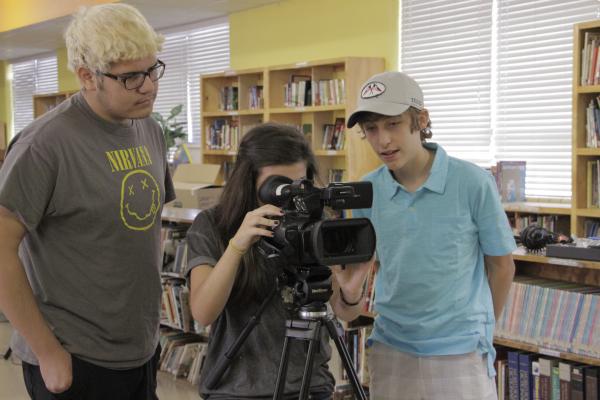The Basics of Filmmaking
Many successful filmmakers learn every aspect of the filmmaking process before landing on one they really love. Learning and trying these different jobs is a step toward becoming a better filmmaker and a great way for aspiring filmmakers to figure out which job they enjoy the most. Here is a list of the top five most important jobs on any set a future filmmaker will have:
Writer– Although not a highly visible position, the writer is one of the most important parts of the filmmaking aspects. They are the ones who conceive the story and are the ones who can make a film dramatic and compelling. The writer’s job doesn’t end once production starts, either. They are constantly rewriting the story to accommodate any new ideas or changes in circumstance.
Director– The script is only an intermediate art form. It is the director’s job to translate to the script into the visual art form of film. Directors often get the most recognition on a film for very good reason. They have a big job – they are often the creative force behind the acting, camera work, lighting, sound, and set design.
Cinematographer– Also known as Director of Photography. This person is responsible for composing the shots and crafting the over-all look of a film. Cinematographers have to think about what will be in the frame of the shot, how the camera is going to move in relation to the subjects, and how the lighting will come into play.
Sound Mixer – Often the most overlooked job in the filmmaking process, the sound mixer has the very important job of capturing clean sound from production. Sound refers to everything we hear in a movie – words, sound effects, and ambience. Sound is used in film to heighten a mood, provide us with information about the location of a scene, advance the plot, and tell us about the characters in the story. Many filmmakers consider sound to be more important that the visuals!
Editor– Editors are the people who put it all together. In a nutshell, it is the editor’s job to take all the raw footage from production and assemble it into a film. Much like the script development stage, the finished film often goes through multiple edits – each one more refined than the last – before the team lands on a ‘final cut.’
There are experts in all of these fields in Austin, and we’ve wrangled a few of them together to teach at Austin Film Festival’s Summer Film Camp. At Summer Film Camp, campers have the opportunity to try their hand in all of these roles and gain invaluable filmmaking experience.
For more information about Austin Film Festival Summer Film Camp or to register, visit http://www.austinfilmfestival.com/yfp/summercamp.

